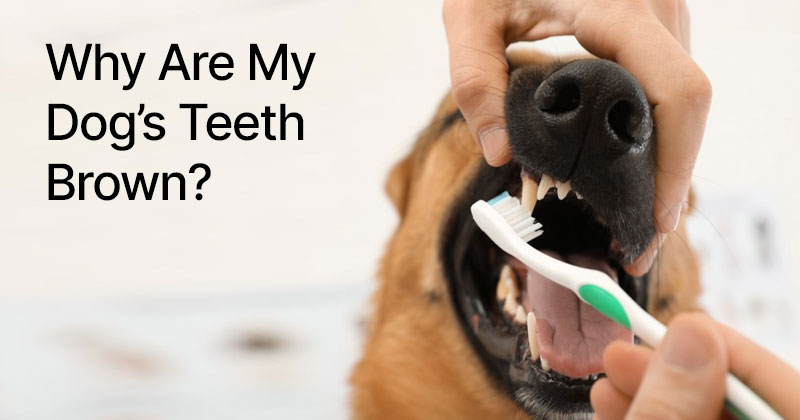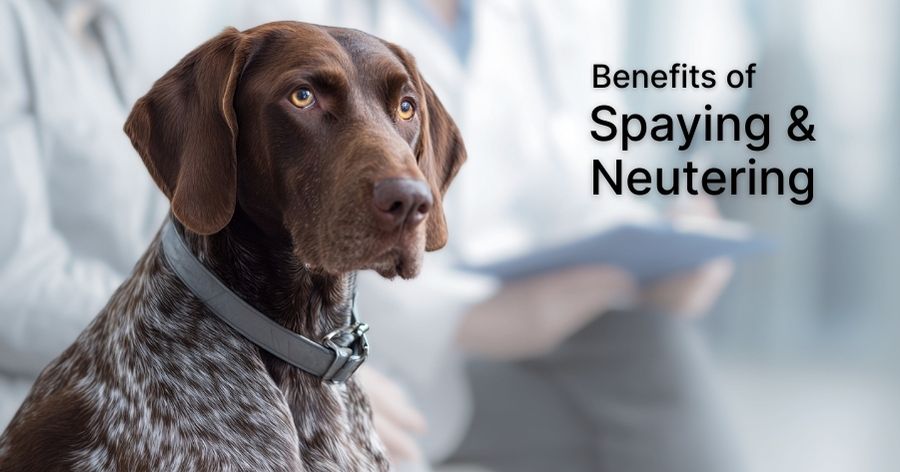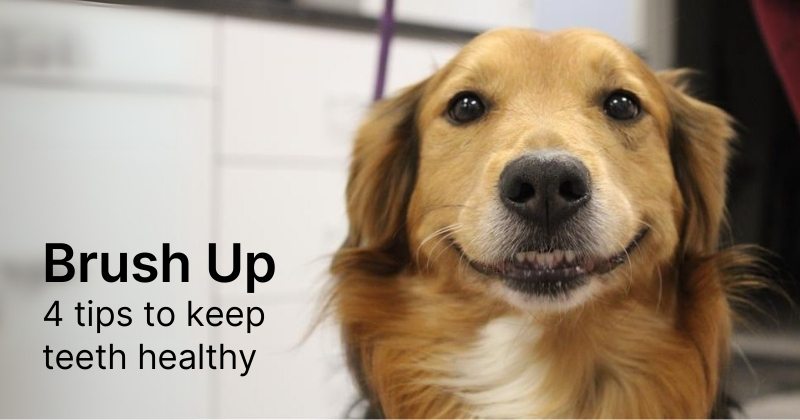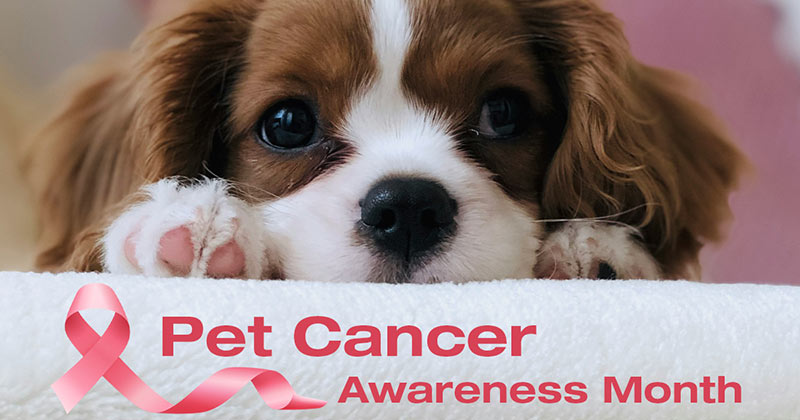
Maintaining your dog’s oral health is vital to their overall well-being, but sometimes pet owners notice their dog's teeth taking on an unusual brown hue. If you’ve seen this in your dog, you may wonder why their teeth are changing color and what it means for their health. Below, we’ll discuss the causes of brown teeth in dogs to help you recognize when it’s time to schedule a dental appointment with Cottner Creek Pet Clinic.
Dental discoloration, especially when your dog’s teeth appear brown, can be concerning. There are several factors that may cause this, ranging from natural aging to more serious dental issues. One of the most common causes of brown teeth in dogs is plaque and tartar buildup, which often begins as a yellowish tint but darkens over time.
Plaque is a soft film that develops on the surface of your dog’s teeth after eating. Without regular cleaning, this film hardens into tartar, which bonds to the enamel and gradually changes the color of the teeth. Brown or yellowish teeth are often the result of tartar accumulation, which can lead to more severe dental conditions if left untreated. The best way to combat plaque and tartar is with regular dental care, both at home and during visits to your veterinarian at Cottner Creek Pet Clinic. Routine cleanings can help maintain healthy teeth and prevent discoloration.
If your dog’s teeth appear brown, poor dental hygiene could be a contributing factor. Dogs, like people, need regular brushing to remove food particles and prevent bacterial growth. Without consistent dental care, plaque can build up quickly, turning into tartar that leads to brown, unhealthy teeth. To help avoid this, brushing your dog’s teeth regularly with vet-approved toothpaste can go a long way in maintaining their oral health.
When tartar remains on the teeth for too long, it provides a breeding ground for bacteria. These bacteria can lead to the breakdown of tooth enamel, resulting in cavities, decay, and a brownish hue.
If your dog’s teeth are turning brown due to decay, you may notice additional symptoms, such as:
In cases of advanced tooth decay, seek veterinary care as soon as possible to prevent more serious health complications.
Just like humans, dogs can experience staining on their teeth from certain foods or objects they chew. Some treats or toys, especially those that are darker in color or made from materials that break down easily, can leave behind residues that darken your dog’s teeth over time.
To minimize the risk of staining, provide your dog with dental-friendly treats and toys specifically designed to help clean their teeth. These items can help scrape away plaque and prevent staining while promoting healthier gums and fresher breath.
Beyond plaque, tartar, and staining, dental diseases can also cause discoloration in your dog’s teeth. Conditions such as periodontal disease or gingivitis often start with mild symptoms but can progress if left untreated, leading to brown, decayed teeth.
Periodontal disease is one of the most common dental problems in dogs, particularly as they age. It begins with gum inflammation, but over time, it can affect the bone and supporting tissues of the teeth, leading to tooth loss and severe discoloration. Periodontal disease often presents itself through:
If you notice any of these symptoms, consult your veterinarian. Regular dental exams can help catch these issues early before they cause long-term damage.
Sometimes brown teeth in dogs aren’t caused by dental hygiene or disease but rather by trauma. If your dog has experienced an injury to the mouth, such as from chewing on hard objects or from an accident, it can cause the affected tooth to die. This dead tooth will often take on a brown or blackish color.
A brown tooth due to trauma often indicates that the tooth is no longer healthy. In these cases, your veterinarian may recommend extraction or other treatments to prevent further complications, such as infections or abscesses. If you suspect that trauma is the reason behind your dog’s brown tooth, reach out to Cottner Creek Pet Clinic for an evaluation at (402) 334-5975. Early intervention can prevent more extensive damage to your dog’s dental health.
Preventing brown teeth in dogs often comes down to a consistent and proactive dental care routine. Here are a few tips to keep your dog’s teeth healthy:
Brown teeth could indicate anything from minor staining to a more serious dental condition. Additionally, if you notice symptoms like bad breath, difficulty eating, or changes in your dog’s behavior, it’s time to have their teeth evaluated by a professional. Cottner Creek Pet Clinic in Omaha, NE, can provide expert dental care to assess and treat your dog’s teeth. Call (402) 334-5975 or request an appointment today to ensure your dog’s teeth and gums remain healthy.
Closed daily from 12:30-1:30pm for lunch; Wednesdays closed from 12:30-2:30pm for lunch/meetings


